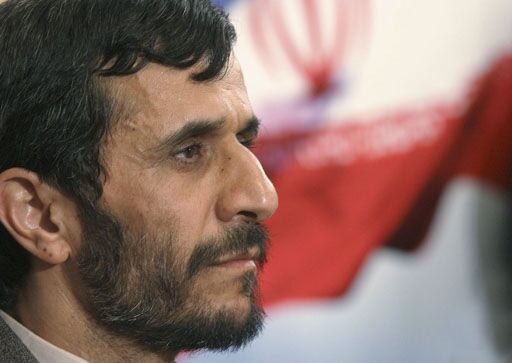
Iran Uses Oil, Iraq Stability to Have Its Way
It seems the extreme pressure applied by the United States, Europe and the United Nations has done little to rein in Iran’s nuclear ambitions. On the contrary, Tehran’s recent actions reveal a brazen confidence and focused desire for regional and global influence.
In spite of the fervent opposition it is meeting, Iran is growing more, not less, belligerent.
Recent reports indicate that Iran’s nuclear program has been put under the management of the nation’s military. “Iran’s new president, Mahmoud Ahmadinejad, has placed the military firmly in control of his nation’s nuclear program …” (Washington Times, October 5).
This decision by President Ahmadinejad did little to assuage other nations’ concerns. In fact, it gutted Iran’s argument that its nuclear program is purely for civilian purposes. Why is it necessary for a civilian nuclear program to be placed under the control of the national military?
At a time when great controversy and debate surround Tehran’s nuclear program, one would expect Iran to seek to calm the situation. Instead, the nation refuses to backdown - and even exacerbates the controversy by placing the controvesial nuclear program under the control of its military. Iran refuses to buckle.
Two reasons undergird Iran’s refusal to acquiesce under international pressure, and for the nation’s growing audacity in its confrontational foreign policy.
First, Iran is confident that through its position as a leading supplier of oil it can wield significant influence over the global energy market. In a world that is highly dependent on oil, Tehran is emboldened by its mammoth oil reserves and ability to influence the supply and price of this critical commodity.
President Ahmadinejad discussed this scenario in a recent interview. Regarding his nation’s nuclear program, he stated, “But if Iran’s case is sent to the [United Nations] Security Council, we will respond by many ways, for example by holding back on oil sales or limiting inspections of our nuclear facilities” (Khaleej Times, October 1). Iran is swimming in oil profits right now; the nation has the second-largest pool of untapped petroleum in the world.
As global demand for oil grows, so too will the political and economic influence of the nations with vast oil reserves. Nations like Iran, Iraq, Russia and Saudi Arabia will only grow in influence. Iran’s vast oil deposits give the government a strong hand at the bargaining table.
By preventing oil from reaching markets, Iran could send oil prices skyrocketing within minutes. Such a scenario could devastate the energy-dependent economies of America, Europe and, indeed, much of the world. Such a devastating strike at the heart of industrialized economies would leave these nations prostrate before Iran.
Second, Iran is aware that it plays a highly influential role in the stabilization of Iraq and establishment of an Iraqi government. With a population that is 89 percent Shia Muslim, Iranian spiritual leaders have significant influence in Iraq, which is also primarily Shia. They are instrumental to stability in Iraq.
Stratfor noted this point recently: “[T]he Islamic Republic is using the Iraq card to give the West a choice—to treat Iran as a cooperative partner in stabilizing Iraq, or as an enemy with enough assets to stir up trouble for coalition troops in Iraq. … Iran is demonstrating its capability to unleash the Shia against U.S.-led coalition forces if pressure against Tehran exceeds the Iranian regime’s tolerance level” (October 6, emphasis ours).
The U.S. is in a difficult position. While on one hand Washington adamantly opposes Iran’s nuclear program and demanding it be stopped on the other, the U.S. relies heavily on Iran’s influence over the largely Shia Iraqi population.
Iran, for its part, knows it is the linchpin in the successful establishment and operation of an Iraqi government.
Iranian foreign policy is growing pushier by the month. The nation leads the world in supporting Islamic terrorism; it has threatened to hijack the global oil market; it persists in its desire for nuclear weapons; it continues to meddle in Iraq. Iran is sowing the seeds of war!
Daniel 11:40 reveals the outcome of Iran’s pushy foreign policy. Pushed one too many times, a united European power will put an end to the king of the south’s pushy foreign policy. Iran will be defeated at the hands of a powerful and united European superpower.
Watch for Iranian foreign policy toward America and Europe to grow pushier. As this occurs, future relations between Iran and Europe will grow strained. Iran’s present conduct is moving the world closer to World War iii!
